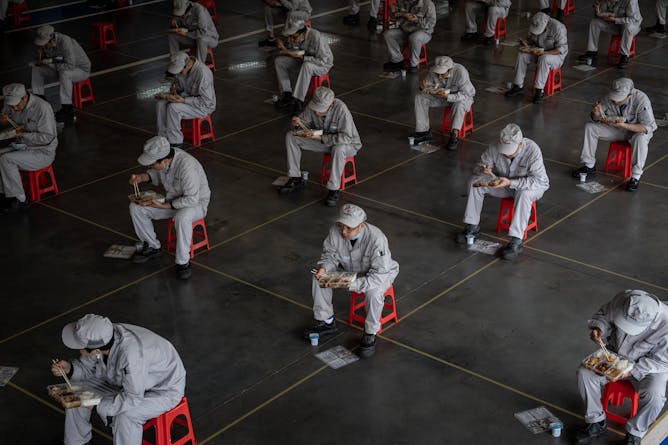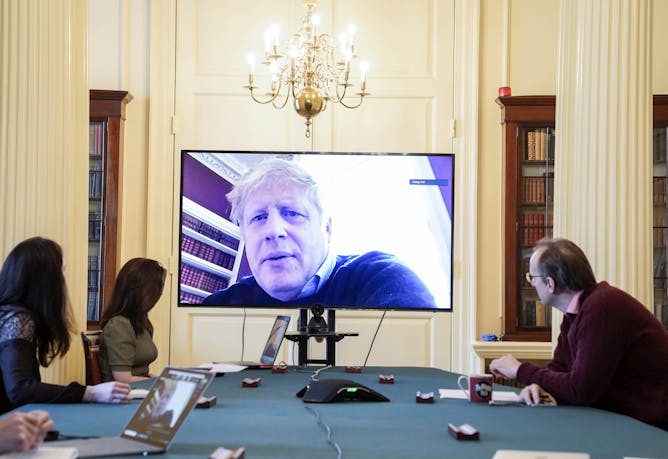|
|
|
Editor's note
|
|
Hundreds of city centres are empty. Makeshift field hospitals that cater for thousands are swiftly being built. A sense of gratitude for key healthcare and supply chain workers grows by the day. There is no doubt that COVID-19 has revealed a strange new world – one that, in some ways, could be here to stay.
The economic effects of the pandemic are particularly stark. How big will the downturn be? How much unemployment will we see? How many businesses will fail? The crisis also raises questions of a different timbre: which jobs are truly valuable to society? Is it right that most people rely on their jobs to live? Can neoliberalism withstand a pandemic?
The ecological economist Simon Mair considers such big questions in our latest Insights article. He reveals how the COVID-19 pandemic has dramatically amplified the dynamic that drives other social and ecological crises, and sketches out four possible futures for a post-pandemic economy. It’s a long read by our standards – but well worth the time.
Meanwhile, it turns out that Boris Johnson believes there’s such a thing as society (unlike Margaret Thatcher). Here’s why that matters. We’ve also published an explainer about the coronavirus vaccine:
why may it take 12-18 months. And if you’re looking for a bit of respite, try reading one of these five Victorian novels with happy endings.
|
Josephine Lethbridge
Interdisciplinary Editor
|

|
|
Top stories
|

Yi Xin/EPA-EFE
Simon Mair, University of Surrey
We could use this crisis to rebuild, produce something better and more humane. But we may slide into something worse.
|

In isolation, the PM is coming over all social.
EPA/Andrew Parsons/Downing Street
Ben Williams, University of Salford
The coronavairus outbreak is a challenge to government that it, in itself, diminishes Thatcher's comments of the 1980s.
|

A vaccine must go through six crucial steps.
PhotobyTawat/ Shutterstock
Samantha Vanderslott, University of Oxford; Andrew Pollard, University of Oxford; Tonia Thomas
Researchers around the world are working hard on developing a vaccine – but the process may still take 12-18 months. Here's why.
|

Tennessee Witney via Shutterstock
Pam Lock, University of Bristol
And every one of them has a happy ending.
|
Politics + Society
|
-
Alan Greene, University of Birmingham
History is full of examples of despots making use of emergency powers to manipulate citizens, which is why states must act responsibly in times of crisis.
-
Heather Conway, Queen's University Belfast
Funerals, as we know them, will regrettably but necessarily be another of our social rituals that must radically alter in the short-term.
-
Heejung Chung, University of Kent
Despite both parents now being at home, the likelihood is that much of the 'domestic' work will still land squarely on the shoulders of the women of the house.
-
Annabel Bligh, The Conversation
We explore the birth of modern-day conspiracy theories.
-
Geraldine Lublin, Swansea University; Mariela Eva Rodriguez, Universidad de Buenos Aires
Ferdinand Magellan coined the fantasy-inspired term "Patagonians" to describe the indigenous peoples he met. It gave rise to the region's name.
|
|
Health + Medicine
|
-
Connor Bamford, Queen's University Belfast
Here's what protection from coronavirus looks like.
-
Sarah L Caddy, University of Cambridge
To demonstrate infectivity, many more tests are needed.
-
Ruth Parry, Loughborough University
Even the most considered medical phrases require careful reflection.
-
Georgia Richards, University of Oxford
Taking tranquilizers with opioids increases the risk of overdose tenfold.
|
|
Science + Technology
|
-
Daniel Miller, UCL
From Facebook to WhatsApp, technology is important to keeping older generations from feeling lonely while social distancing during coronavirus
-
Marinus van IJzendoorn, University of Cambridge; Marian Bakermans-Kranenburg, Vrije Universiteit Amsterdam
Up to 35% of mothers and fathers don't fall in love with their baby immediately.
|
|
Education
|
-
Helen Dodd, University of Reading; Tim Gill, University of Reading
Instead of insisting on homeschooling primary-age kids, free play can help them learn and has benefits for physical and mental health.
|
|
Business + Economy
|
-
Sandy Brian Hager, City, University of London; Joseph Baines, King's College London
Tax rates may be the same for big and small companies, but five charts show how things work out differently in practice.
|
|
Environment + Energy
|
-
Raya A. Al-Masri, University of Surrey
More than two billion people live without reliable access to clean water.
|
|
| |
Featured events
|

|
Future Technology Centre, Portland Street, Portsmouth, Hampshire, PO1 3AH, United Kingdom of Great Britain and Northern Ireland — University of Portsmouth
|

|
Julian Study Centre Lecture Theatre, University of East Anglia, Norwich, Norfolk, NR4 7TJ, United Kingdom of Great Britain and Northern Ireland — University of East Anglia
|
|
|
|
| |
| |
| |
| |
| |
|
|
|
|
|
|
|